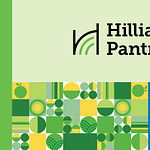In this edition of the HBAC, Jordan, Tim and Kevin welcomed return guest Paul Lambert for an overdue look at the local political landscape following Hilliard’s recent Democratic primary. We talked the upcoming November election and the pending transition in city management.
You can connect with more of Paul’s writing on his Facebook profile: Educate Hilliard
Local Elections Signal Civic Awakening
We opened with a reflection on the Democratic primary, where voters selected a slate of candidates including incumbents and newcomers. Notably, Nadia Rasul secured a nomination, reflecting both her community ties (including decades as a local pharmacist) and the increasing engagement of Hilliard’s Muslim community. Lambert highlights how civic involvement often grows from communities feeling excluded or wronged, pointing to the Noor Islamic Cultural Center’s increased political participation as an example of developing democracy in action. The group discusses the challenges and opportunities of building representative governance through both the ballot box and the courts.
City Manager Transition at a Pivotal Moment
As Hilliard’s first city manager, Michelle Crandall, prepares to step down at the end of July, the group examines what’s at stake in appointing her successor:
Balance between professional administration and elected oversight,
Potential for political maneuvering ahead of the November elections,
Importance of local knowledge in managing a city like Hilliard.
Lambert notes that any incoming city manager will need a deep understanding of Ohio’s unique municipal frameworks to be immediately effective.
Tracing the Roots of Hilliard’s Complex Governance
The podcast then shifts into an educational / historical deep dive led by Lambert. He traces the trends and policy decisions—from postwar annexation and water system practices to the “win-win” school district agreements—that have shaped Hilliard’s patchwork of municipal boundaries, school districts, and tax districts. His walk-through of some of the intricacies of property tax policy, annexation law, and school district politics helps explain how present-day development tensions emerged.
Paul’s latest post regarding property tax and school funding interactions from June 9th.
Why Local Engagement Matters
To wrap it up, local politics offers a rare space where citizens can meaningfully shape outcomes—whether through elections, advocacy, or direct service. Hilliard residents deserve improving ways and methods to stay informed, involved and participating beyond just Election Day.


















Share this post